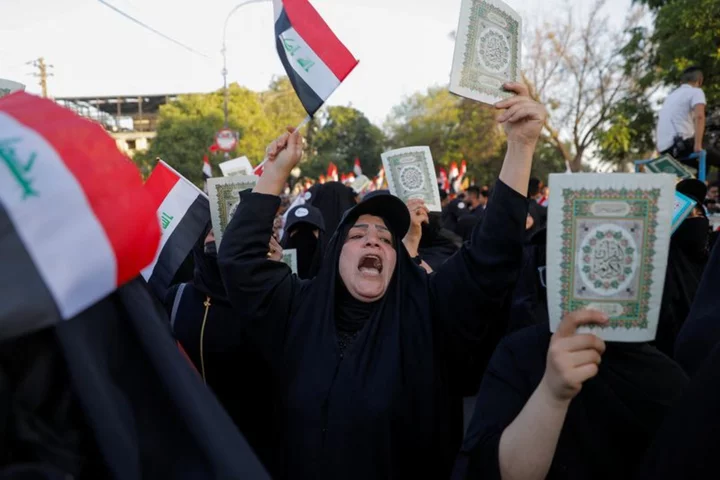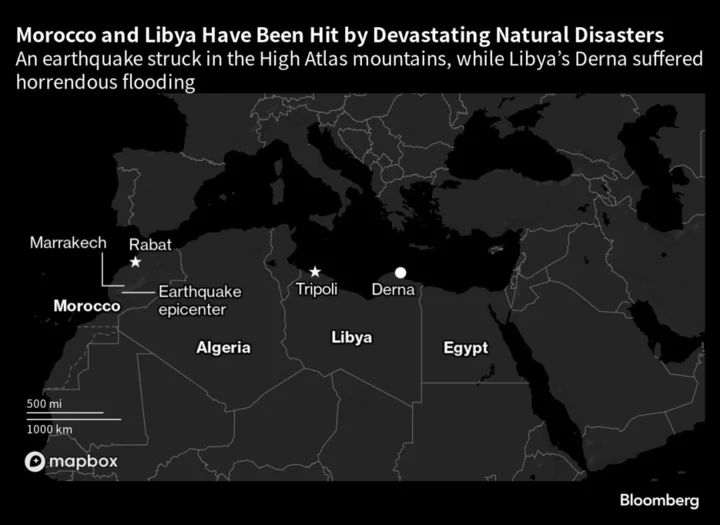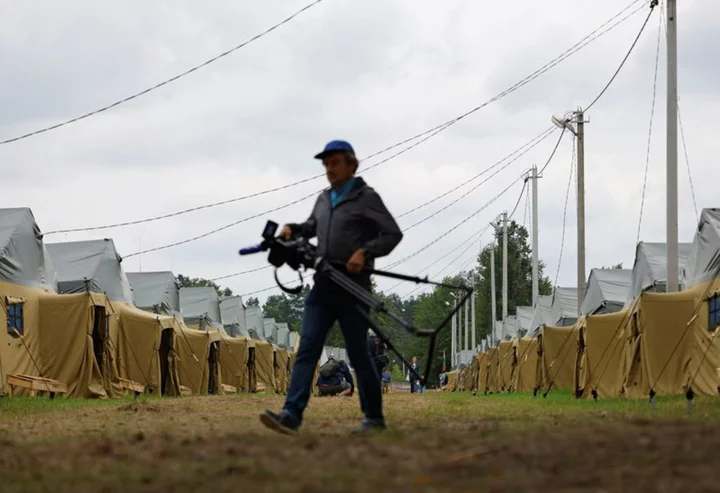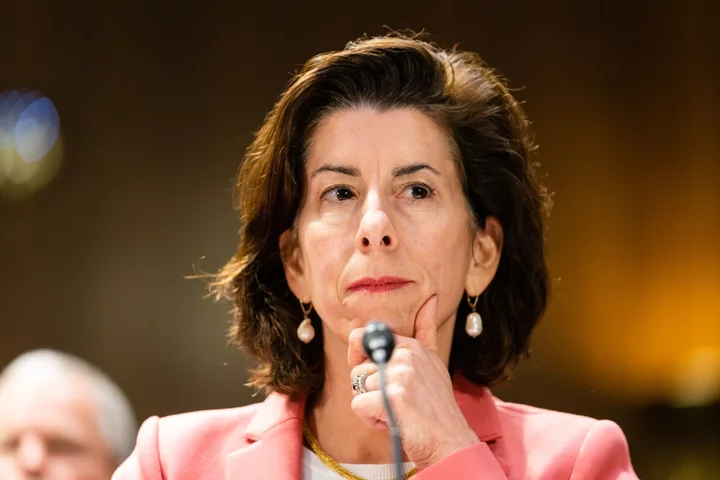By Timour Azhari and Haider Kadhim
BAGHDAD (Reuters) -Several thousand Iraqis demonstrated in Baghdad on Saturday over the burning or damaging of the Koran during anti-Islam protests in Sweden and Denmark, in a gathering called by ruling Iraqi parties and armed groups, many close to Iran.
Protesters gathered in central Baghdad amid heavy security measures, with bridges leading to the Green Zone that houses many foreign embassies shut after an attempt by protesters to get to the Danish Embassy in the early hours of Saturday.
That attempt, repelled by Iraqi security forces who fired tear gas according to a government source, came 48 hours after the Swedish Embassy was overrun and set alight in protest at a planned burning of the Koran in Stockholm.
Iraq condemned the attack on the Swedish Embassy but also expelled the Swedish ambassador in protest at the planned burning of the Koran, the central text of Islam which Muslims believe to be a revelation from God.
On Friday in Denmark, a man set fire to a book purported to be the Koran on a square across from the Iraqi Embassy in Copenhagen.
The event was livestreamed on the Facebook platform of a group that calls itself "Danish Patriots". The video shows the book burning in a tin foil tray next to the Iraqi flag on the ground, with two onlookers standing and talking next to it.
Danish Foreign Minister Lars Lokke Rasmussen condemned it as an act of "stupidity" by a few individuals, telling national broadcaster DR: "It is a disgraceful act to insult the religion of others”.
“This applies to the burning of Korans and other religious symbols. It has no other purpose than to provoke and create division,” he said. He noted however that burning religious books was not a crime in Denmark.
Iran's foreign ministry summoned the Danish ambassador on Friday to protest against "the desecration of the Koran in Copenhagen," the ministry tweeted on Saturday.
Tehran had earlier on Saturday urged Denmark and Sweden to take measures to end repeated attacks on the Koran in the Nordic countries, saying Muslims around the world expected the desecration to be stopped.
During Thursday's anti-Islam demonstration in Stockholm, protesters kicked and partially destroyed a book they said was the Koran but left the area after an hour without setting it alight.
The incident prompted Middle Eastern states including Saudi Arabia and Iran to summon Swedish diplomats in protest.
Koran burnings are permitted in Sweden, Denmark and Norway, which all have legal protections for freedom of speech.
Iranian Supreme Leader Ayatollah Ali Khamenei said on Saturday that people who burned the Koran deserved the "most severe punishment" and demanded Sweden hand over perpetrators to "the judicial systems of Islamic countries".
'PRACTICAL ACTION'
Iranian Foreign Ministry spokesperson Nasser Kanaani said: "Iran believes that the Danish government is responsible for preventing insults to the Holy Koran and Islamic sanctities, as well as prosecuting and punishing those committing the insults."
Public opinion in the Islamic world was waiting for "practical action" by the Danish government, Kanaani said in a statement carried by state media.
The Danish foreign ministry could not immediately be reached for comment.
Iran, which has delayed the posting of a new ambassador to Sweden, also said it was reciprocally not accepting a new Swedish envoy over the attacks on the Koran.
A Swedish government spokesperson said there was a phone conversation on Friday between the Swedish and Iranian foreign ministers, but declined to give details of what they discussed.
The Iraqi presidency meanwhile called in a statement for international organisations and Western governments "to stop incitement and hate practices, whatever their pretexts".
It also warned Iraqis against being drawn into what it described as a "plot of sedition" which it said aimed to show Iraq was unsafe for foreign missions.
Up until Saturday evening, protests in Baghdad over the Koran burnings have been led by supporters of influential Shi'ite cleric Moqtada Sadr, a powerful figure opposed to the Iran-backed groups in government, and who analysts say is using the protests as a show of force.
The demonstration on Saturday evening was the first major action called by Iran-backed parties and armed groups that back the government.
Attendees were seen carrying the flags of Asaib Ahl al-Haq, a military-political group designated a terrorist organization by the United States, as well as pictures of the former commander of Iran's Quds Force, Qassem Soleimani, who was killed by the United States in 2020.
(Reporting by Timour Azhari and Haider Kadhim in Baghdad, Louise Rasmussen in Copenhagen, Supantha Mukherjee in Stockholm and Hatem Maher in Cairo; Writing by Tom Perry and Timour AzhariEditing by Frances Kerry)









